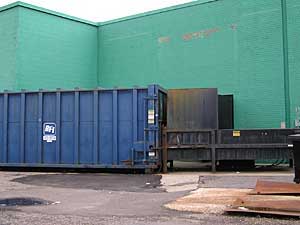|
Audio
Photos
More from MPR
|
St. Paul, Minn. — The Plan to End Homelessness reports that on a single night, more than 700 people experienced long-term homelessness in St. Paul and Ramsey County. The report says 52 percent of homeless people report they've had a serious or persistent mental illness.
A key element of the plan to end homelessness is to provide mental health services and other assistance to help people maintain both their housing and mental stability.
St. Paul Mayor Randy Kelly says homeless people need more than just a roof over their heads.
"They also need a place where they can access chemical dependency treatment; where they can have access to mental health treatment and job training," Kelly said.
Kelly says this plan is different, because homeless people were asked to participate in the planning. The plan also has concrete goals.
St. Paul will provide 300 units of supportive housing, and has reached an agreement with Catholic Charities to build a 120-bed single occupancy facility in the Midway area next year. The state is providing a $10.6 million grant to build the Midway facility.
Jennifer Ho, the executive director of Hearth Connections, a group working on housing issues, is also the chair of the St. Paul/Ramsey County Homeless Advisory Board. She's hopeful the plan is the first step to designing a region-wide approach to combatting homelessness.
"If people are homeless and need a housing choice, they shouldn't be limited by a city's jurisdiction or a county to understand where there are jobs, or where they might want to go live," Ho said.
Jennifer Ho says the homeless people she's spoken to are supportive of the new plan. Homeless people are often a bit wary of new programs. But in her experience, once people feel they're moving into a safe environment, they're grateful.
"When people have the opportunity to have their own home, and the key to their own place, and the security and the dignity and the opportunity that creates -- people aren't resistant to that," Ho said.
Sue Sazevich agrees that homeless people hope the new plan will help. Sazevich is a grandmother who's dealing with a number of health problems. Sazevich had been homeless for three years and is one of the founders of the "X-committee."
The committee is a group of homeless people who meet Wednesday afternoons at St. Paul's Listening House. The group wrote Mayor Kelly to outline their concerns. Sazevich believes the group's letter prompted Kelly and others to get involved in solving the housing problem.
"It will help all the homeless. Not only in my position as a grandparent -- somebody over 50. We have people over 80 sitting homeless, which is not fair," Sazevich says.
Greg Owen, the director of research for the Wilder Foundation, a nonprofit health and human service organization, says he generally supports the plan. But Owen cautions that things are constantly changing among the homeless population. He's not sure the plan can end homelessness within five years.
|
We believe in ourselves. The power comes from that -- our hearts.
- Sue Sazevich, formerly homeless
|
"Whether or not the specific target of ending long-term homelessness is achieved, I don't think, is as important as having a target, and having a number of concrete number of units that you're going to build," Owen said.
Mayor Kelly says if homeless people are better served and get services, it will save taxpayers in the long run. The plan cites a study that found people who have moved from the streets to supportive housing have fewer emergency room visits and arrests, all of which cost taxpayers money.
The $131 million pricetag for the program includes money for building 207 new housing units and rehabilitating 345 units. It also includes money for rental assistance and support services.
Sue Sazevich says she was proud listening to public officials talk about the plan. She says homeless people often feel they don't have a voice in the community. In fact, she says her group at the Listening House named itself the X-Committee, because they sometimes feel they're invisible in society.
"We believe in ourselves. The power comes from that -- our hearts. And if you don't have the heart in it, I feel sorry for you," Sazevich said.
Randy Kelly's opponent in the St. Paul mayor's race, Chris Coleman, says he's not read the full report. But he says he agrees, in principle, with the goals.






